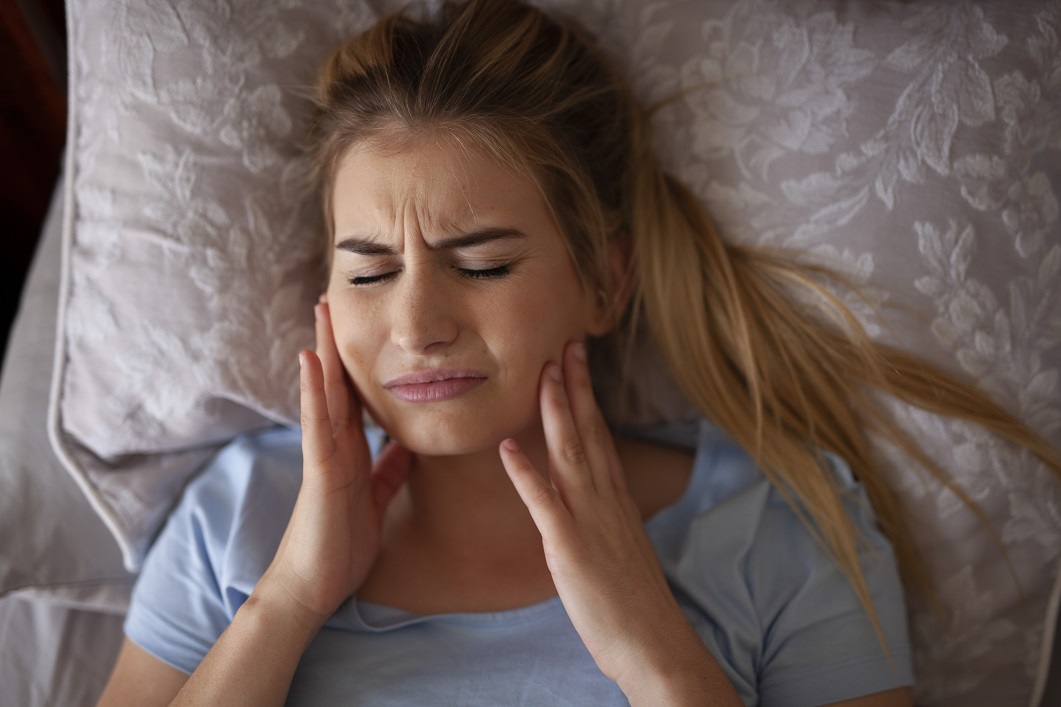
What is Bruxism?
Do you clench your jaws when you get stressed or angry? Many people do, but some people clench, thrust their jaw forward, or grind their teeth repeatedly without realizing they are doing it – sometimes even in their sleep. When these behaviors become habits, it is called bruxism.
Who Is At Risk For Bruxism?
You may develop bruxism as an adult or as a child. Sleep bruxism can develop as early as age 4 years, but it peaks at the ages of 10 through 14 years. Awake bruxism is more common in adults.
What Causes Bruxism?
No one knows what causes bruxism, However, studies have found some problems common among people with the habit. Awake bruxism seems to be strongly related to emotional stress. And many people with sleep bruxism also have breathing difficulties when they sleep, like snoring or interrupted breathing. In fact, more than half the children in 1 study with interrupted breathing also had sleep bruxism.
Some medications also may trigger bruxism. Drinking beverages with caffeine and smoking tobacco also may increase the risk of developing bruxism.
Can Bruxism Cause Damage?
Bruxism is hard on your teeth and your muscles. It is estimated that people with bruxism clench or bite down with a force six times greater than normal forces.
Damage to your teeth can range from surface cracks to broken teeth or restorations. This can result in tooth pain. In the worst case, teeth can be lost as a result of bruxism. The stress from bruxism also can damage the tissues that support the teeth, causing teeth to become loose.
Signs of Bruxism
- Jaw pain or stiffness
- Wear on your teeth
- Headache (especially when you wake up)
- Teeth that are sensitive to hot or cold
- Indentations along the side of the tongue
- Restlessness during sleep
- Daytime sleepiness
- Waking frequently during the night
- Difficulty getting to sleep
What Can Be Done?
Talk to your dentist if you think you have bruxism. He or she may suggest the following:
- Medications like muscle relaxers or shots that can help reduce muscle tension
- Talking to your physician about medication you take to see if they are contributing to the problem.
Your dentist may also suggest the use of an oral appliance to help protect your teeth. He or she can make a customized plastic tray that fits over either your top or bottom teeth, which may help reduce clenching or grinding.
If you are experiencing any of the symptoms of Bruxism, be sure to speak with your dentist to help identify and treat your symptoms.
The Journal of The American Dental Association
Leave a reply →
